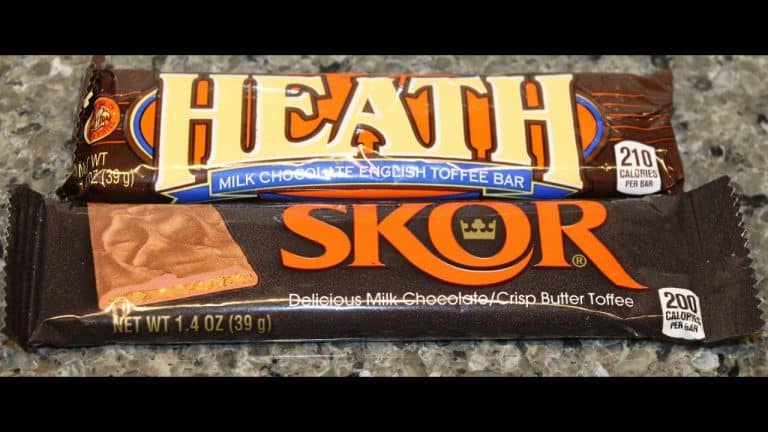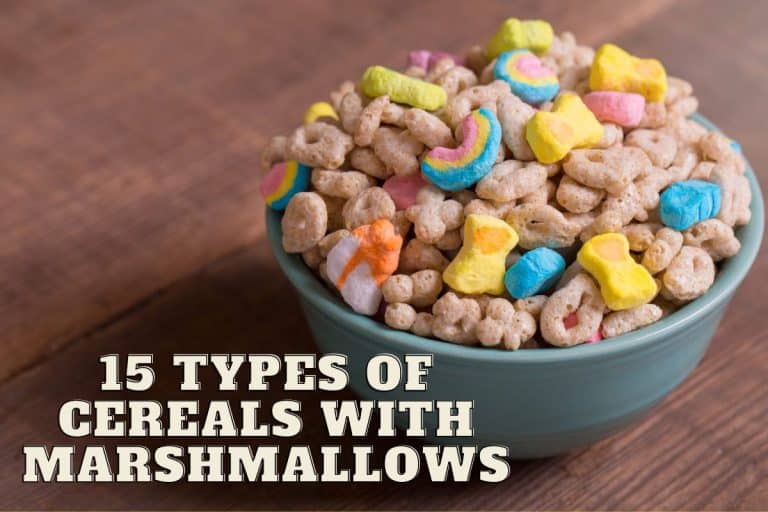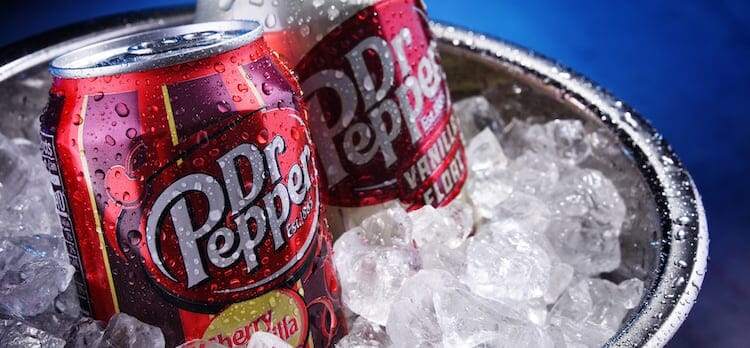Do you love Mountain Dew and Coke, and are you wondering which has the highest amount of caffeine? This article has got every answer to your question. Here, you will find out the caffeine content in both soft drinks.
Quick Preview show
Coke and Mountain Dew are two globally—consumed soft drinks that have existed for years. Mountain Dew was first produced in 1940, while Coke was first produced and sold in 1886, making it the longest-serving soft drink among the two.
Both drinks have distinctive features — Mountain Dew can easily be recognized by its bright green color and its citrus flavor. On the other hand, Coke trades its identity on its dark color and caramel taste.
PepsiCo is responsible for the production and distribution of Mountain dew, while The Coca-Cola Company produces Coke.
Both are carbonated drinks since they use carbonated water as an ingredient. They are also high-corn syrup, which gives them their sweet taste.
One question that people have asked the most has to do with the caffeine content of both soft drinks. Many people want to know which one has more caffeine. Below are my findings.
Caffeine is in Mountain Dew and Coke?
The amount of caffeine in Mountain Dew varies. It depends on the serving size. A 12 fl oz can or bottle of Mountain Dew gives you exactly 54 milligrams of caffeine, while a 16 fl oz can have approximately 72 milligrams.
Like Mountain Dew, Coke also has a varying amount of caffeine, depending on its serving size. A 12 fl oz can of Coke has about 34 milligrams of caffeine. You will get 45 milligrams of caffeine in a 16 fl oz Coke.
Caffeine Content in Mountain Dew Vs. Coke
Like I said earlier, both Mountain Dew and Coca-Cola contain caffeine, but the amount of caffeine can vary depending on the specific product and serving size. Here is the caffeine content for the serving size of each drink:
| Serving Size | Mountain Dew Caffeine Content | Coke Caffeine Content |
| 20 fl oz
| 91 mg | 57 mg |
| 16.9 fl oz
| 77 mg | 48 mg |
| 16 fl oz
| 72 mg | 45 mg |
| 12 fl oz
| 54 mg | 34 mg |
| 8 fl oz
| 36 mg | 23 mg |
| 7.5 fl oz
| 34 mg | 21 mg |
Caffeine Content in Diet Mountain Dew and Diet Coke
Both Diet Mountain Dew and Diet Coke are varieties of original drinks. However, what sets them apart is the presence of artificial sweeteners used instead of sugar. Here is the caffeine content for the serving size of each drink:
| Serving Size | Diet Mountain Dew Caffeine Content | Diet Coke Caffeine Content |
| 20 fl oz
| 91 mg | 76 mg |
| 16.9 fl oz
| 77 mg | 64 mg |
| 16 fl oz
| 72 mg | 61 mg |
| 12 fl oz
| 54 mg | 46 mg |
| 8 fl oz
| 36 mg | 31 mg |
| 7.5 fl oz
| 34 mg | 28 mg |
Caffeine levels in Diet Mountain Dew are the same as in regular Mountain Dew. Regular Coke could be an exception to this rule. You will find more caffeine in Diet Coke than in regular Coke. As seen above, a 12-ounce regular Coke only has 34 mg of caffeine, whereas a 12-ounce Diet Coke has 46 mg of caffeine.
Diet Mountain Dew has roughly 4.5 milligrams of caffeine per 12-ounce can, whereas Diet Coke has about 3.83 milligrams of caffeine per 12-ounce can. Caffeine content varies per soft drink, although Diet Coke contains more than normal Coke and less than regular and Diet Mountain Dew.
The Origin of Caffeine in Mountain Dew and Coke: Where Does their Caffeine come from?
Caffeine in soft drinks may seem counterintuitive. There are two basic motivations for this augmentation.
As a first point, the beverage industry will say that adding caffeine makes their products taste better. People claim that caffeine is responsible for Coke’s acrid taste. Taking the caffeine out of the drink alters the taste. Caffeine may not affect the taste at all, according to some research.
Why is caffeine added if it doesn’t enhance the flavor? That’s quite simple. Caffeine functions as a stimulant and affects the neurological system. This makes you more predisposed to want the beverage in question after consumption.
To put it another way, the presence of caffeine in a beverage increases the likelihood that the consumer will depend on it and purchase further servings. Soda is very addicting due to its caffeine and sugar content.
Mountain Dew Vs. Coke Caffeine: Which is Healthy?
Neither Mountain Dew nor Coca-Cola is a healthy drink, so it’s tough to say which is worse or which is healthy. Over time, drinking any of these beverages to excess has no positive health effects and may have negative effects.
Caffeine-wise, Coke comes up short compared to Mountain Dew. Even if this has been improved, Coke is still not a good choice for your health because of its high caffeine content.
You’ll find 34 milligrams of caffeine in a 12-ounce can of Coca-Cola. Caffeine levels are greater in Diet Coke, despite its promotion as a “healthier” alternative to regular Coke. Exactly 46 milligrams of caffeine can be found in a 12-ounce Diet Coke.
While a caffeine-free Coke is available, it still contains a lot of sugar. If you wish to reduce your caffeine intake but still like the taste of Coke, this is a fantastic option. Because of the sugar content, you may want to limit your consumption.
When comparing Mountain Dew to Coke, the former has more caffeine. If you’re looking at the caffeine content of the two beverages, Mountain Dew is the worst choice.
Both Mountain Dew and Coke are generally considered unhealthy beverages. The medical community recommends limiting how often you indulge. Consuming these drinks regularly is associated with health risks such as increased hunger and glucose levels.
Drinking over one or two cans of Mountain Dew or Coke daily is discouraged. Twenty-four ounces is the maximum allowable serving size of Coke.
FAQs
- Do Mountain Dew and Coke have any major differences?
While both Mountain Dew and Coke contain caffeine, the citrusy flavor of Mountain Dew contrasts with the caramel sweetness of Coke. Compared to Coke’s caramel flavor, Mountain Dew is often sugarier and has a tangier, lemony taste.
- Which is better, Mountain Dew or Coke?
Mountain Dew and Coke contain significant sugar and caffeine levels, which may negatively affect health. Include them in moderation in your diet to maintain good health.
- Are there preservatives in Mountain Dew and Coke?
You will find preservatives in varieties of Mountain Dew and Coke. This helps them to extend their shelf lives. Examine the product’s label for a list of components if you need exact certainty.
Conclusion
As a result of the above, Mountain Dew is the clear winner in terms of caffeine content compared to Coca-Cola. Reduce your intake of Coke, Mountain Dew, and other beverages if you attempt to wean yourself off caffeine.
However, the caffeine in sodas like Coke and Mountain Dew may make it tough to give up soda altogether. Soda firms won’t say it, but caffeine enhances sales by piquing consumers’ appetites. Giving up Mountain Dew and Coke will need willpower and determination.



![Does Orange Soda Have Caffeine? [Answer is Yes]](https://www.brandsprite.com/resources/wp-content/plugins/wp-fastest-cache-premium/pro/images/blank.gif)